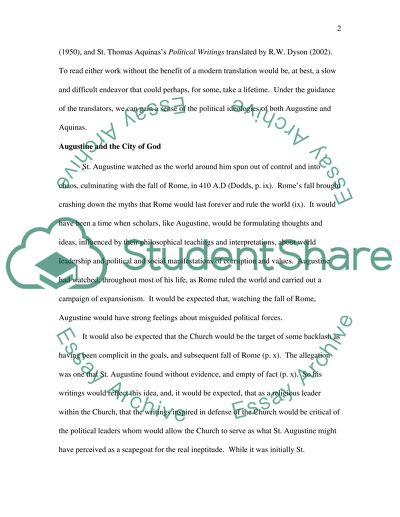Cite this document
(Augustine and Aquinas Justifications of the Exercise of Social and Coursework, n.d.)
Augustine and Aquinas Justifications of the Exercise of Social and Coursework. Retrieved from https://studentshare.org/politics/1550810-agustine-and-aquinas-justifications-of-the-exercise-of-social-and-political-ruling
Augustine and Aquinas Justifications of the Exercise of Social and Coursework. Retrieved from https://studentshare.org/politics/1550810-agustine-and-aquinas-justifications-of-the-exercise-of-social-and-political-ruling
(Augustine and Aquinas Justifications of the Exercise of Social and Coursework)
Augustine and Aquinas Justifications of the Exercise of Social and Coursework. https://studentshare.org/politics/1550810-agustine-and-aquinas-justifications-of-the-exercise-of-social-and-political-ruling.
Augustine and Aquinas Justifications of the Exercise of Social and Coursework. https://studentshare.org/politics/1550810-agustine-and-aquinas-justifications-of-the-exercise-of-social-and-political-ruling.
“Augustine and Aquinas Justifications of the Exercise of Social and Coursework”. https://studentshare.org/politics/1550810-agustine-and-aquinas-justifications-of-the-exercise-of-social-and-political-ruling.


